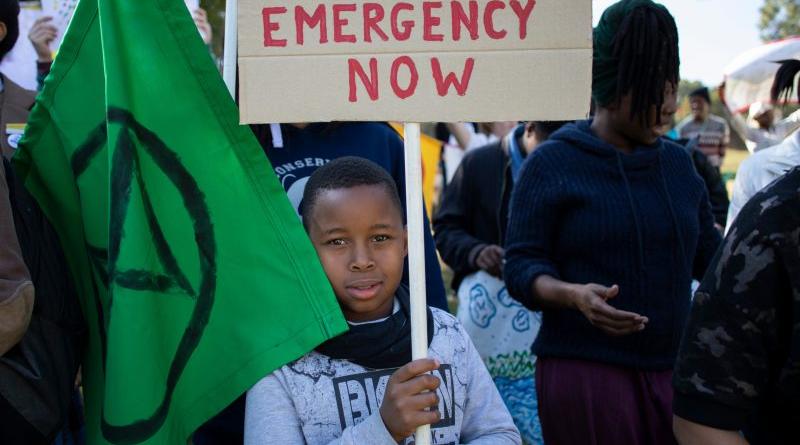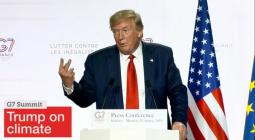G7 Leaders, take a stand for Africa!

Africa is still heavily reliant on coal. To protect the climate, leading industrialised countries should help Africa to invest in clean growth and leapfrop to renewables, says former Kenyan Prime Minister Raila Odinga.
Raila Amolo Odinga is a Kenyan politician who served as the Prime Minister of Kenya from 2008 to 2013 and is leader of the opposition since 2013. He is currently the African Union’s High Representative for infrastructure development in Africa.
In June of this year, the small seaside town of Lamu in Kenya was catapulted onto the global stage. Kenyan courts halted a Government of Kenya and Chinese backed coal power plant from being constructed, ruling that the plant lacked a comprehensive impact assessment. If the plant went ahead and got built it would increase Kenyan emissions by 700%.
While this ruling is clearly a set back to the plans by the government to spur growth through access to cheap electricity, it is nonetheless a challenge to the country to do much more and provide cleaner energy for its growth needs. The ruling which is a big win for anti-coal campaigners, was also a warning to global investors that all parts of the world deserve green growth and we must jointly invest in it. No part of the world, rich or poor, north, or south deserves less.
Kenya is not alone in attempting to develop coal plants. While coal is a dirty word to some, Africa is still heavily reliant on it. According to recent data, new coal power stations are being developed in 18 African countries and nearly all are fueled by foreign investment. This surge is largely to fill the energy access gap – a majority of the 1 billion people lacking electricity access live in rural Sub-Saharan Africa and South Asia. But in the long run, coal is only making our situation worse.
We know that climate change hits the most vulnerable first and worst: Worldwide 100 million people are already at risk of being pushed into poverty because of climate change by 2030 – particularly across Sub Saharan Africa – and 720 million by 2050. Up to 65% of the African population is likely to be impacted by the consequences of this climate crisis – even though African nations are responsible for just 2-3% of global emissions.
As finance for energy flows into Africa faster today than at any time in history, the investments create huge potential, but also carry great risk. Africa needs to move away from the energy systems of the past and demand investments that put the needs of our citizens first.
We must think about how we want Africa to develop – if we hope to survive and thrive in a carbon-constrained, warming world, there should be no role for the foreign funding of coal in our lands.
The science is clear: we are facing a climate emergency. 2019 is set to be the hottest year ever- The Arctic is burning, sea ice is melting, glaciers are collapsing even from Africa’s peaks like Mt. Kilimanjaro and Mt. Kenya. Our world is changing faster than ever: storms are lashing our coastlines, water is running dry in cities, our natural environment – and the birds, bees and animals that call it home -is under siege. Our farmers are struggling with unpredictable patterns of droughts and floods.
The world’s top scientists at the UN’s Intergovernmental Panel on Climate Change have said that we have until 2030 to limit global emissions to keep global temperatures within the 1.5- degree limit agreed in the Paris climate accord. The recently released special report on land and climate change reinforced this warning and highlighted the threat posed to the global food system from climate change.
Although this may sound like dire news, we at least now have a roadmap of escape. Scientists are showing us what we need to do to fix our climate and protect ourselves. First up, we must end our damaging addiction to fossil fuels. This reliance on fossil fuels has already caused great harm to the people and communities in the world’s least developed countries, where we are already enduring most of the physical impacts of climate change with every passing season.
African people want to leapfrog the infrastructure and energy systems of the past and harness the clean, green, renewable technologies of the future: As the G7 leaders convene in Biarritz, it is crucial that we use this opportunity to articulate that we want to capitalise on these future investment opportunities to develop responsibly, in a way that doesn’t pollute our own communities or our shared climate.
To do this we need to first kill coal, then rapidly phase-out oil and gas. This means investing in clean growth, recharging and revitalising our forests, grasslands, rivers, and seas. It means scaling up climate action plans in 2020 to get on track for net zero by the middle of the century without leaving anyone behind.
A recent study states that without action, climate change will damage all economies – rich or poor. As climate impacts become more pronounced in all regions of the world, it is time for leaders to scale up existing efforts. It can no longer be considered ‘leadership’ to make half- hearted climate commitments in the face of this crisis. We saw this from Australia at the recently concluded Pacific Island Forum, and others at the G20 summit held in Japan. The upcoming G7 meeting must not go down a similar path.
Africa deserves better. Countries that exist on the front lines of climate breakdown deserve to be at the heart of climate solutions. The time for climate denial is now over, and as allies and friends to the G7 countries, we ask that these world leaders take a stand and address this climate emergency, setting a template for true climate leadership.
This G7 meeting is part of a crucial double-header with the UN Secretary General calling for a crucial climate summit on September 23. It is vital that these meetings usher in a new kind of climate leadership, one that can see our true predicament and takes the challenge head on. If we can get that, we can start to turn the tide on the climate story and pull off the greatest act of international collaboration in human history.
24 August 2019
Euractiv


